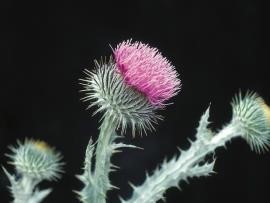
Figure 1. Scotch thistle (photo courtesy of DPI NSW)
Description: Scotch thistle (Onopordum acanthium L. ssp. Acanthium) is a large prickly, woolly, grey-green annual or biennial thistle with one to three large purple flowers and a stout taproot.
Life cycle: Scotch thistle is an annual or biennial weed. Seeds germinate at any time, with a flush of germination in late summer to early autumn or late winter.
As a soil indicator: Scotch thistles are most abundant in high-fertility areas such as sheep camps and river flats. They are uncommon on waterlogged soils.
Negative attributes: Scotch thistles are strongly competitive and damage the mouths and eyes of stock and contaminate wool.
Dispersal: Scotch thistles are spread by seed and can produce more than 20,000 seeds per plant. Buried seed has a long life in the soil and germinates when returned to the surface. Seeds and plant fragments can be carried in wool, and seeds survive passage through the gut of ruminants. Birds are thought to aid dispersal.
Legislation: Noxious weed of ACT, NSW, Vic. and Tas.
Non-chemical control methods: Mowing and slashing are usually ineffective because the plant re-shoots from the base. Cultivation needs to be repeated regularly because it transplants root fragments.
Remove isolated plants including the taproot manually. Competition through the establishment of Demeter fescue or Phalaris is effective.
Growers’ experiences: Henschke mainly finds scotch thistles in the undervine area in its Adelaide Hills vineyards. Efforts have been made to manage them through mowing, but because the plants re-shoot from the base, they are difficult to control. Manual removal of isolated plants, including the taproot, helps to eradicate this weed.
Resources
HerbiGuide (HerbiGuide website)
Henschke Wines: A non-chemical weed control case study from the Adelaide Hills, SA
Integrated weed management in Australian cropping systems (Grains Research and Development Corporation publication)
Contact
For further information, please contact:
AWRI helpdesk
Phone 08 8313 6600 Email helpdesk@awri.com.au

